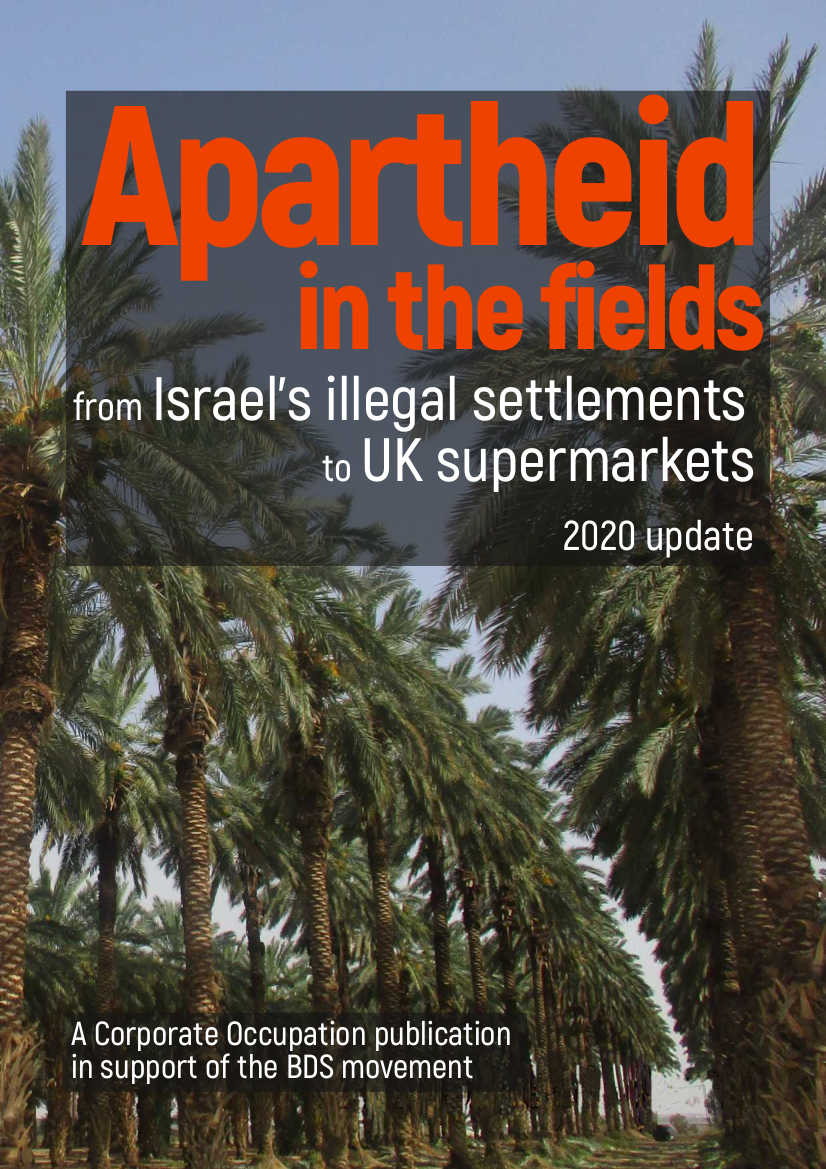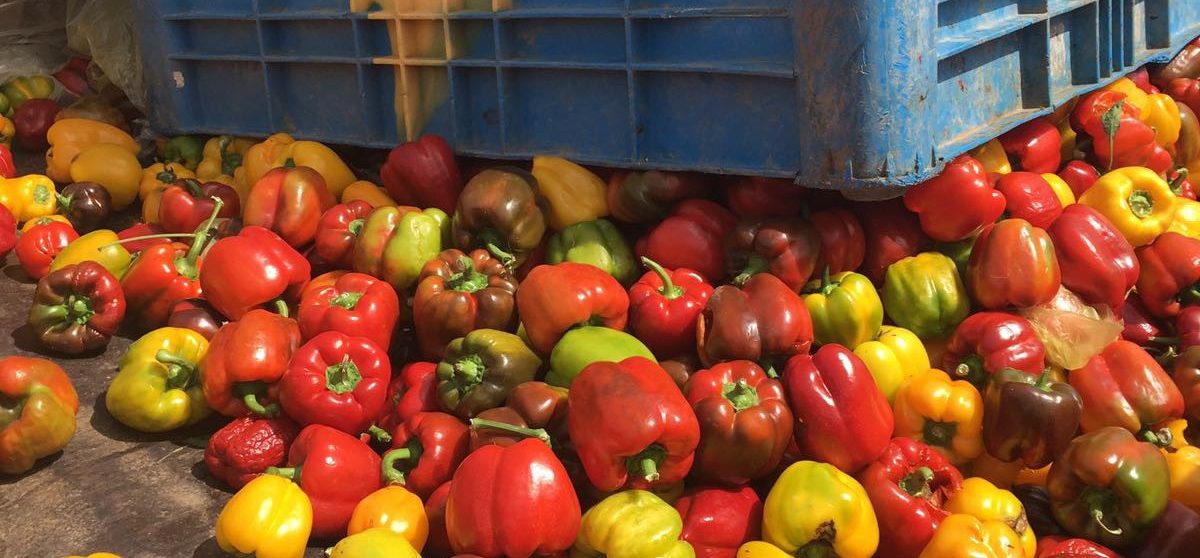By Tom Anderson
Corporate Watch were inside the Sainsbury’s AGM yesterday. Here’s an account of what happened:
Campaigners protesting outside the Sainsbury’s AGM at the QE2 conference centre in Westminster yesterday called for the company to cease working with companies profiting from Israel’s occupation of Palestine.
The Sainsbury’s ‘Taste the Indifference’ campaign has been pressuring the company for almost two years, calling on them to follow the lead of the Cooperative Group and cease trading with companies operating in Israel’s settlements. Taste the Indifference has been holding monthly days of action where groups across the UK picket Sainsbury’s branches or occupy stores.
On the morning of the AGM, Corporate Watch had published an ‘open letter’ to Sainsbury’s shareholders.
The AGM saw Mike Coupe replace Justin King as Sainsbury’s CEO. The ‘Taste the Indifference’ campaign has written a letter to Mike Coupe signed by representatives of Jews for Boycotting Israeli Goods (JBIG), the Palestine Solidarity Campaign, the Boycott Israel Network, and the Israeli Committee against House Demolitions calling for the company to cease trading with companies that operate in the settlements. The letter is also signed by several Members of Parliament and the European Parliament, as well as Israeli historian Ilan Pappe.
Before the AGM, Sainsbury’s Company Secretary Mike Fallowfield came outside to accept a petition from protesters. 6,500 signatures have been collected in support of the aims of the campaign, as well as 2000 postcards.
The AGM began at 10.30. Outgoing CEO Justin King spoke enthusiastically about the setting up of more Sainsbury’s stores and the expansion of existing ones. He also said “Our values are a unique point of difference”. However, many of the shareholders present questioned these values.
Several people had purchased shares in order to tell the board that they did not want Sainsbury’s to expand in their area. One woman from the village of Southam said that local people did not want a new Sainsbury’s store, as there was already a large supermarket in the village, and pledged to boycott it should it open. Another group from Bristol was campaigning against the building of a Sainsbury’s on the site of a local war memorial.
“The governments of 17 members of the European Union, including the UK, have published warnings urging their citizens to refrain from engaging in business, economic activity and investment in settlements or bodies connected to the illegal Israeli settlements. These governments state that business relations with entities operating in settlements are inherently risky, from an economic, reputational and human rights perspective.
“In the UK, the Secretary of State for Commonwealth and Foreign Affairs has made it clear that the British Government expects British companies to treat the risk of contributing to gross human rights abuses through their operations as an issue of legal compliance, and to positively adopt policies to identify, monitor and prevent risks to human rights.
“The Base Code of the Ethical Trading Initiative, of which Sainsbury’s is a full member, also states that retailers must respect basic rights in their supply chain. What steps, therefore, does Sainsbury’s intend to take to comply with these government guidelines with respect to its trade with companies that operate in illegal Israeli settlements?”
David Tyler, non-executive director replied for the Sainsbury’s board:
“We are well aware of this issue, we monitor and audit with regard to the companies in our supply chain. We can’t find any evidence that those companies have done anything wrong. I think you are asking a wider question for us to boycott the products of any company sourcing from the settlements. We do not source from any company sourcing from settlements in the West Bank in our food and non-food products.”
However, Another activist shareholder pointed out that Sainsbury’s stocked Sodastream products and that Sodastream have their main manufacturing facility in the settlement of Mishor Adumim in the West Bank. The board replied that Sainsbury’s did not source own brand products from settlements but that Sodastream products would simply have to be labelled as such if they were manufactured in a settlement. Apparently, Sodastream has promised that their labelling policy has changed and that its products will be labelled as such in the future.
A third shareholder asked: “A recent report by Israeli research group Who Profits? shows that Sainsbury’s suppliers such as Mehadrin and Edom are deeply involved Israel’s policy of forcibly displacing Palestinian farmers from their land and constructing settlements on occupied land in violation of international law.
“The Who Profits? report also documents how these companies routinely lie about the origin of their produce and market products from illegal settlements as ‘Made in Israel’.
“How can you trust Israeli companies such as Mehadrin to act in ways that allows Sainsbury’s to live up to its promises about behaving in an ethical way? Given the growing body of evidence showing that they employ routine deception, what assessment has Sainsbury’s made about whether its Israeli suppliers are honest about the true origin of their produce?”
At the end of the AGM the Sainsbury’s board was inundated with more questions from shareholders about the ethics of their business.
Sainsbury’s – stop sourcing from occupation profiteers
Sainsbury’s claims that they have no evidence that there is wrongdoing within Sainsbury’s supply chains but Corporate Watch and others have presented ample evidence that Arava, Edom and Mehadrin have a track record of sourcing from settlements where child labour is employed and workers are paid less than the Israeli minimum wage.



0 Comments